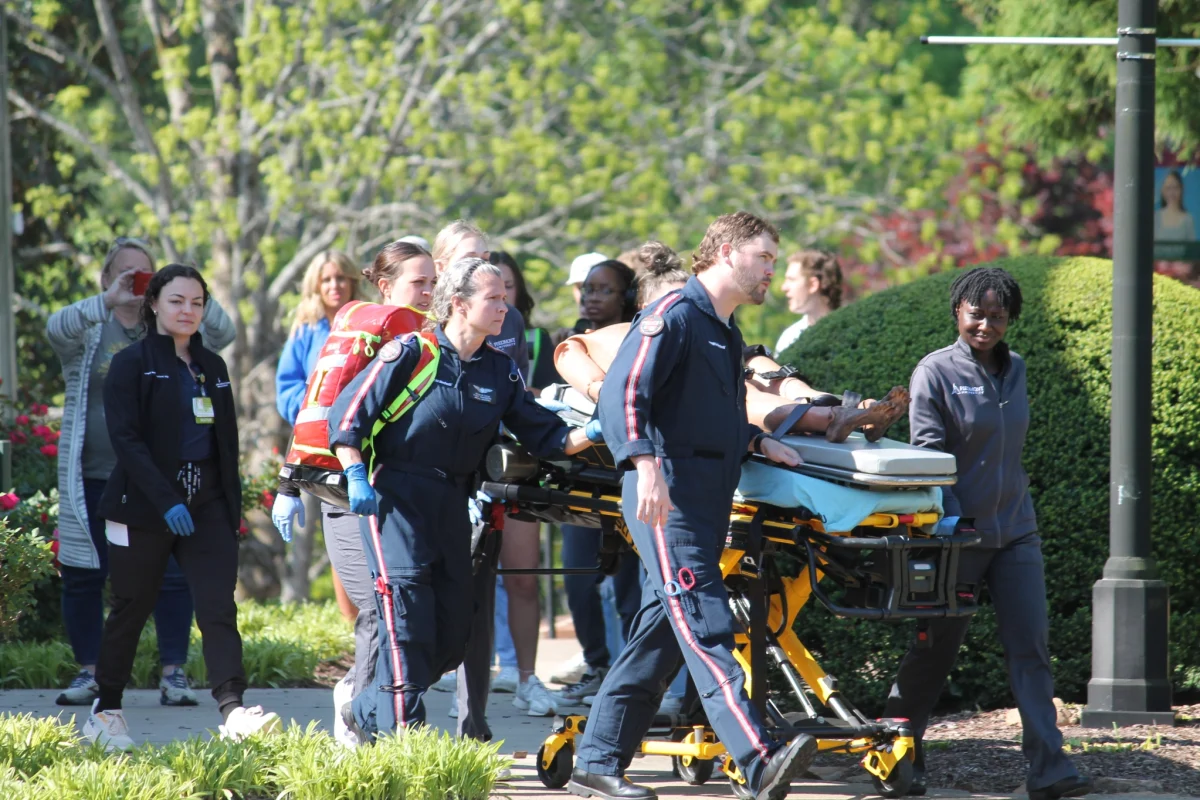By Janie Harris
Sports Editor
As a prank, an inflatable pool was placed in junior mass communications major Branson Mikell’s room.
This pool then traveled to sit just outside of Johnson residence hall, but not too much later, Mikell and his friends discovered a not-so-pleasant surprise in their inflatable pool-someone had defecated in it.
The first case students heard around campus was from senior biology major Jessica Tolliver.
According to Tolliver, after spending a late night out at Trader John’s Grille, she returned to her room and immediately fell asleep.
The next morning, Carmen Savelli, a senior psychology major, woke Tolliver up and they both found excrement on her floor.
“It was definitely human,” said Tolliver.
However, Tolliver said she wasn’t sure of who did it and when.
While it would be likely that she would have woken up, the individual could have come in while she was sleeping.
But the question that one would ask is, why would someone do this?
Mikell said he thinks that it must be a joke because he couldn’t think of any other reason to commit such an act.
“I am a little surprised that someone would be willing to go that far to do that,” Mikell said.
But there was another incident that happened not too long after.
Senior mass communications major CJ Ciarlante found feces thrown against the wall of Johnson residence hall, the same building the inflatable pool was located. Ciarlante was unable to identify if the fecal matter was human or animal, but he said that it smelled terrible.
Ciarlante said that he used paper towels and attempted to clean it off the wall himself .
However, cleaning up feces, human or animal, can be a health risk.
According to the U.S. Army Center for Health Promotion and Preventive Medicine and the Air Force Institute for Operational Health, “A sick animal or human can harbor harmful bacteria, viruses, or parasites (e.g. worms) and pass them in their stool,” the organization says.
The organization also said that animals and humans that are not outwardly sick can still carry these illness-causing organisms called “pathogens,” and excrete them into the environment.
When they are excreted, they then become available for other people or animals to contact and perhaps become ill.
Piedmont’s campus police has not received a single report. In fact, they found out about the incidents from Savelli’s opinions article published in the last issue of the Navigator.
Without an actual report, police Chief Dick Martin questions the validity of the students’ claims.
“How much of it is true and how much of it isn’t?” said Martin.
While Tolliver said the feces that was in her room was definitely human, Mikell was a bit more hesitant to confirm the origin of the excrement he and his friends found.
“We are not 100 percent sure that it was human excrement,” said Mikell.
And while Tolliver believed the individual must have entered her room and did the act right then and there, Mikell said he believes the excrement was moved to the pool from another location.
As for the car that was mentioned in Savelli’s article, she said that the person who owned the car that was found with feces on it wishes to remain anonymous.
This individual never reported it, and did not speak to the Navigator about the matter.
Stories like this are circulating around campus, and while campus police is now hearing about these stories, they cannot launch an investigation until someone reports an incident in a timely manner.
“I feel like I should have reported it,” said Tolliver.
But Martin said the individual committing these acts would not be reprimanded by the law, but instead sought help.
“Why someone would do this, I have no idea,” said Martin.















